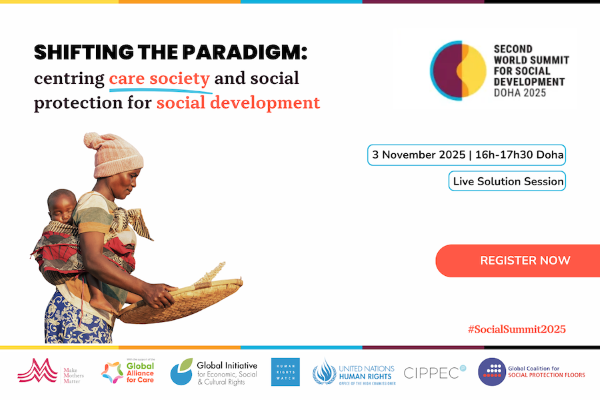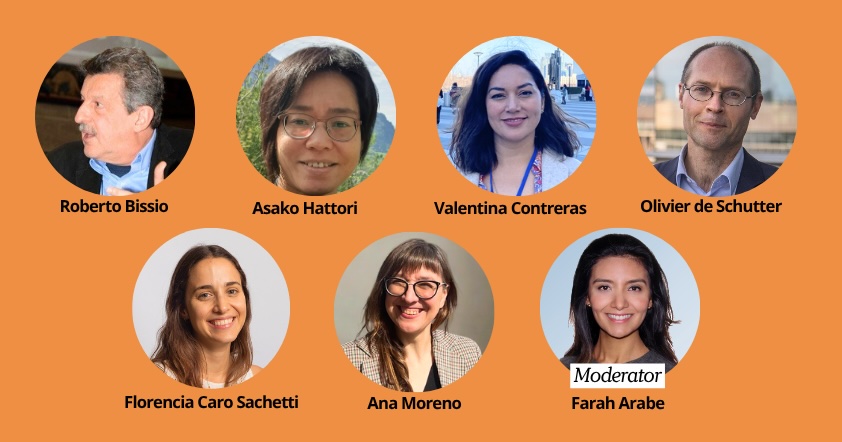Reply to comment

#mce_temp_url#Join us on Monday 3rd November for our online panel discussion: Shifting the paradigm: centring care society and social protection for social development.
Monday 3 November
16:00-17:30 Doha / 14:00-15:30 Paris / 8:00-9:30 New York
Online - Registration
Coming on the back of the International Day of Care and Support, this virtual event will explore how universal social protection and strong care systems are essential to building inclusive, resilient societies. The webinar is part of the Second World Summit on Social Development (4-6 November, Doha Qatar). This official solution session is jointly organised by Make Mothers Matter, GI-ESCR, CIPPEC, and OHCHR, with support from Human Rights Watch, the Global Coalition for Social Protection Floors (GCSPF) and the Global Alliance for Care.
Programme![]() Speakers bios
Speakers bios
Moderator: Farah Arabe, Main representative to the UN in New York, Make Mothers Matter (Moderator)
Introductory Remarks: Roberto Bissio, Member, Global Coalition for Social Protection Floors (GCSPF)
Panel
Asako Hattori, Human Rights Officer, Women’s Human Rights and Gender Section, UN Office of the High Commissioner for Human Rights (OHCHR)
Valentina Contreras Orrego, Programme Officer on Public Services and Care, Global Initiative for Economic, Social and Cultural Rights (GI-ESCR)
Olivier de Schutter, UN Special Rapporteur on Extreme Poverty and Human Rights
Florencia Caro Sachetti, Associate Researcher Social Protection Program, Centro de Implementación de Políticas Públicas para la Equidad y el Crecimiento, Argentina (CIPPEC)
Q&A
Concluding remarks
Ana Moreno, Technical Secretary, Global Alliance for Care (TBC)
Background
Although the 1995 Copenhagen Declaration adopted at the first World Summit on Social Development emphasised placing people at the center of development and recognised women and families as key agents of social progress, it did not fully acknowledge the central and crucial role of care in social development.
Care and support work—both paid and unpaid—is foundational to human wellbeing and social development. Yet it remains undervalued, invisible in economic planning, and unequally distributed, particularly across genders and between families, communities, the private sector and states. Recognising, supporting and redistributing care and support work is essential for building inclusive, equitable, and sustainable societies, which is the very objective of social development.
Care and support work contributes significant economic value globally and underpins both the productive and reproductive functions of society. Yet this contribution remains inadequately reflected in national statistics and public policies. Improving women and girls’ lives demands a shift in how we measure productivity–including finding models that go beyond GDP–and in the ways in which we redistribute the costs and benefits of sustaining life on the planet.
Taking social development seriously requires states and communities to strengthen human rights-based universal, quality public care systems: those that guarantee the rights of all people

